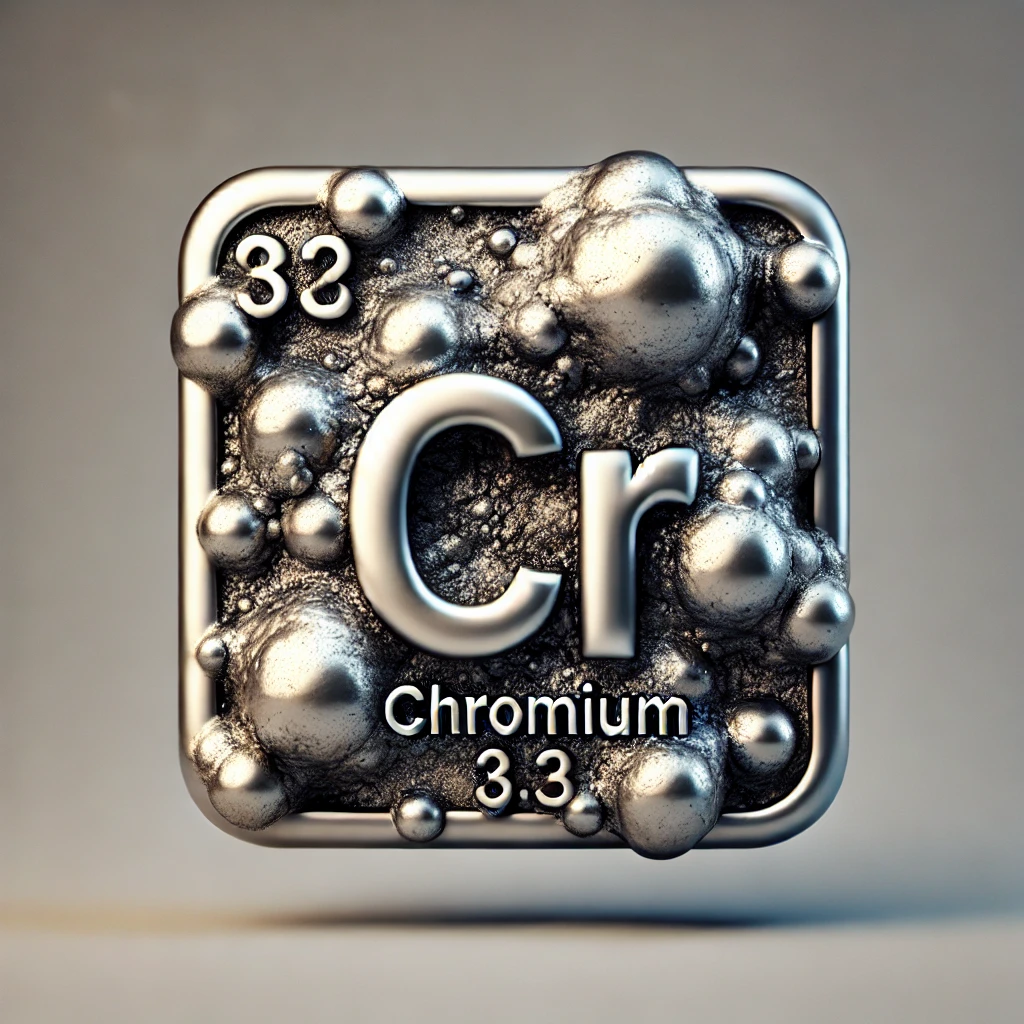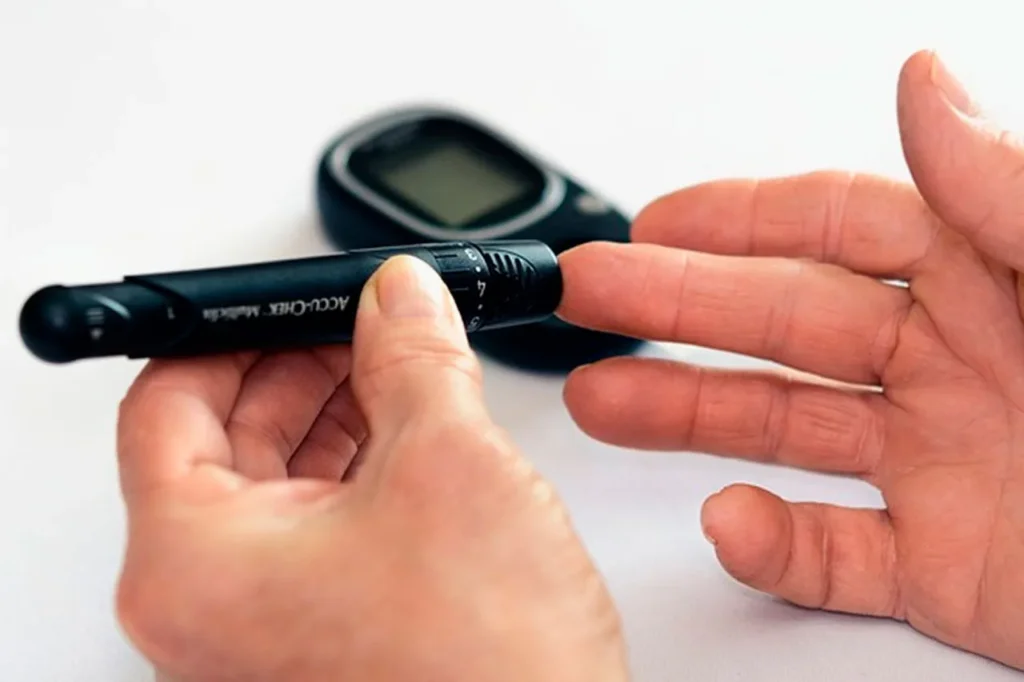Glucose Product Buyer’s Guide (updated August 2024)
How To Find The Best Blood Sugar Support Supplement
UPDATED: August 14, 2024
In a Nutshell
To find the best blood sugar support supplement, focus on products with proven ingredients like Berberine, Alpha Lipoic Acid, Cinnamon, Bitter Melon, and Chromium. Look for transparency in ingredient sourcing, avoid exaggerated claims, and choose supplements that are third-party tested or made in a certified Good Manufacturing Practice (GMP) facility. Consulting with a healthcare provider and reviewing customer feedback can also help you make an informed decision.

Senior Editor
Health & Wellness Advice
jennifer@glucose-guide.com
We all know how confusing it can be to navigate the world of supplements, especially when it comes to managing something as important as blood sugar. You might have seen ads or read labels that promise to lower your blood sugar, boost your energy, and keep you feeling great. But how do you know which ones actually work?
Maybe you’re like me—I’ve spent hours staring at shelves full of colorful bottles, each claiming to be the best. It can feel overwhelming, right? You’re not alone in feeling lost or unsure about which product to trust. The truth is, not all supplements are created equal. Some are made with high-quality ingredients that are proven to help, while others are just flashy marketing in a bottle.
That’s why it’s so important to know what to look for when choosing a blood sugar support supplement. In this guide, we’ll break down everything you need to know, so you can make a smart, informed decision that’s right for your health. After all, you deserve to feel your best, and that starts with choosing the right tools to support your body.
Understanding Blood Sugar and Why It Matters
Imagine your body as a well-tuned engine, running smoothly and efficiently. Just like a car needs the right fuel to function properly, your body needs the right balance of sugar in your blood to keep everything working as it should. But what exactly is blood sugar, and why is it so important?
Blood sugar, or glucose, is the main type of sugar found in your blood. It comes from the food you eat, especially carbohydrates like bread, pasta, and fruits. After you eat, your body breaks down these foods into glucose, which then enters your bloodstream. This glucose is like fuel for your cells, giving them the energy they need to power your muscles, brain, and organs.
Now, here’s where things get interesting: Your body has a special hormone called insulin that helps move glucose from your blood into your cells, where it can be used for energy. Insulin acts like a key, unlocking your cells so glucose can get inside. When everything is working right, your blood sugar levels stay in a healthy range, and you feel energized and balanced.
But sometimes, things don’t go as smoothly as they should. If your body doesn’t make enough insulin or if your cells become resistant to it, the glucose can’t get into your cells properly. This can cause your blood sugar levels to stay too high, which over time can lead to serious health problems like diabetes, heart disease, and nerve damage.
That’s why keeping your blood sugar in check is so important. It’s not just about avoiding sweets or cutting out carbs—it’s about giving your body the support it needs to process sugar effectively. And that’s where blood sugar support supplements can come in handy. But as we’ll explore in this guide, not all supplements are created equal, and choosing the right one can make a big difference in how you feel and how well your body manages your blood sugar.
The Problem with the Supplement Industry
If you’ve ever shopped for supplements, you’ve probably noticed that the options are endless. Every bottle seems to shout that it’s the “best,” the “most effective,” or the “fastest” at helping you manage your blood sugar. But here’s the thing: not all of these claims are true. In fact, some of them are downright misleading.
Let me share something that might surprise you. A lot of supplement companies are more focused on making money than on making a product that actually helps you. They might use cheap ingredients or cut corners on the amount of each ingredient they include. So, you end up paying good money for something that might not do much more than a sugar pill.
Some companies even manipulate the facts, twisting research to make their product seem like a miracle cure. They might claim that their supplement is “scientifically proven,” but when you look closer, you’ll find that there’s no solid science backing up their claims. It’s like buying a car that looks great on the outside, but when you pop the hood, you realize it doesn’t even have an engine.
And that’s why so many people feel lost when trying to choose a supplement. It’s easy to get caught up in the fancy labels and glowing promises, only to be disappointed when the product doesn’t deliver. Maybe you’ve been there, too—taking a supplement for weeks or even months, hoping to see a change, but feeling like nothing’s happening.
The truth is, the supplement market can be a bit of a minefield. But don’t worry—there’s a way to navigate it without getting lost. In the next sections, we’ll dig deeper into what makes a good blood sugar supplement and how you can spot the ones that are worth your time and money. Because when it comes to your health, you deserve something that truly works, not just empty promises.
Key Ingredients to Look for in a Blood Sugar Support Supplement
When it comes to picking a blood sugar support supplement that actually works, the secret is in the ingredients. Not all ingredients are created equal, and some have a lot more science behind them than others. Let’s take a closer look at the stars of the show—the ingredients that really make a difference when it comes to supporting healthy blood sugar levels.
Berberine

First up is Berberine. This ingredient is like the MVP of blood sugar support. Berberine, found in several plants, has been used for centuries in traditional medicine, and modern science backs up its benefits. Berberine helps activate something called AMPK, a crucial enzyme that plays a big role in how your body processes sugar. Think of it as a traffic cop directing glucose to where it needs to go. Studies have shown that Berberine can be as effective as some prescription drugs for lowering blood sugar, which is pretty impressive for something that comes from a plant.
Cinnamon

Next on the list is Cinnamon—yes, the same spice you sprinkle on your oatmeal. But not all cinnamons are the same. The type known as Ceylon cinnamon is the one you want. Cinnamon helps improve insulin sensitivity, which means your body can use glucose more effectively. It’s like giving your insulin a little boost so it can do its job better. Just be careful with Cassia cinnamon, which is more common but can be harmful in large amounts.
Bitter Melon

Ever heard of Bitter Melon? This funky-looking fruit might not be in your regular grocery cart, but it’s a powerhouse for blood sugar support. Bitter Melon contains compounds that act like insulin in your body, helping to lower blood sugar levels. It’s like having a backup system when your own insulin needs a little help.
Alpha-Lipoic Acid (ALA)

Then there’s Alpha-Lipoic Acid, or ALA for short. This ingredient acts as a strong antioxidant, helping to fight off damage caused by free radicals. But what makes ALA special is its ability to improve insulin sensitivity and reduce inflammation, both of which are key for keeping your blood sugar levels stable. Think of ALA as a shield, protecting your body from the effects of high blood sugar.
Fenugreek

Fenugreek is another ingredient that deserves a spot on the list. This herb is rich in soluble fiber, which helps slow down the absorption of sugar in your stomach. It’s like putting a speed bump in the road, making sure your blood sugar doesn’t spike too quickly after you eat. Fenugreek also has been shown to increase insulin sensitivity, making it easier for your body to manage glucose.
Chromium

Don’t forget about Chromium, a trace mineral that might not get a lot of attention but plays a big role in blood sugar regulation. Chromium helps insulin do its job more effectively, improving how your body handles carbohydrates. It’s like having an extra hand on deck to make sure everything runs smoothly.
Gymnema Sylvestre

If you’ve ever struggled with sugar cravings, Gymnema Sylvestre might be your new best friend. This herb is known as the “sugar destroyer” because it can reduce the absorption of sugar in your intestines. It also helps curb cravings for sweets, making it easier to stick to a healthy diet.
Other Powerful Ingredients
While these are some of the heavy hitters, there are other ingredients worth mentioning, like banana leaf, which contains corosolic acid to help lower blood sugar, and ginseng, which has been linked to improved insulin sensitivity. And let’s not forget Turmeric (Curcumin), known for its anti-inflammatory properties, which can help support overall metabolic health.
So, when you’re scanning the label of a blood sugar supplement, keep an eye out for these ingredients. These ingredients aren’t just fillers—science backs them, and they have the potential to make a real difference in how your body manages blood sugar. Remember, it’s not about how many ingredients are crammed into a bottle, but about the quality and effectiveness of those ingredients. Choose wisely, and you’ll be on your way to better blood sugar control.
Key Ingredients in Blood Sugar Support Supplements: A Comparison
| Ingredient | Main Benefits | Typical Dosage | Scientific Backing | Potential Side Effects |
|---|---|---|---|---|
| Berberine | Activates AMPK, improves insulin sensitivity | 500 mg 2-3x/day | Yes | Gastrointestinal issues, constipation |
| Cinnamon | Enhances insulin sensitivity, lowers blood sugar | 1-6 g/day | Yes | Liver damage (with high doses of Cassia cinnamon) |
| Bitter Melon | Mimics insulin, reduces blood sugar levels | 100-200 mg/day | Yes | Gastrointestinal discomfort |
| Alpha-Lipoic Acid (ALA) | Improves insulin sensitivity, reduces oxidative stress | 300-600 mg/day | Yes | Mild nausea, skin rash |
| Fenugreek | Slows sugar absorption, increases insulin sensitivity | 5-30 g/day | Yes | Diarrhea, bloating |
| Chromium | Supports insulin function, helps carbohydrate metabolism | 200-1,000 mcg/day | Yes | Stomach pain, headache |
| Gymnema Sylvestre | Reduces sugar absorption, curbs sugar cravings | 200-400 mg/day | Yes | Mild digestive upset |
| Banaba Leaf Extract | Contains corosolic acid, helps lower blood sugar | 16-48 mg/day | Yes | Mild digestive upset, dizziness |
| Magnesium | Improves insulin sensitivity, regulates blood sugar | 200-400 mg/day | Yes | Diarrhea (with high doses) |
| Zinc | Supports insulin production and function | 15-30 mg/day | Yes | Nausea, metallic taste, stomach upset (with high doses) |
| Resveratrol | Improves insulin sensitivity, reduces oxidative stress | 150-500 mg/day | Yes | Gastrointestinal issues, headaches |
| Green Tea Extract | Improves glucose metabolism, enhances insulin sensitivity | 250-500 mg/day | Yes | Insomnia, nausea (due to caffeine content) |
| Inositol | Supports insulin function, helps with metabolic syndrome | 2-4 grams/day | Yes | Nausea, fatigue, headaches (with high doses) |
| Omega-3 Fatty Acids (Fish Oil) | Improves insulin sensitivity, reduces inflammation | 1,000-3,000 mg/day | Yes | Fishy aftertaste, nausea, loose stools |
| Quercetin | Improves insulin sensitivity, reduces blood sugar levels | 500-1,000 mg/day | Yes | Headache, tingling in arms and legs |
Understanding Scientific Backing
So, you’ve found a supplement that looks good on paper. It’s got all the right ingredients, the label is transparent, and it’s from a reputable company. But before you add it to your cart, there’s one more step that’s super important: making sure there’s solid science backing up the claims. After all, you wouldn’t want to invest in something that doesn’t actually work, right?
Clinical Studies and Research
Let’s talk about clinical studies. These are research experiments that test whether a supplement really does what it says it will. When a supplement is supported by clinical studies, it means that scientists have carefully tested it on real people and found that it can actually help with blood sugar management. This is like getting a thumbs-up from experts who know what they’re talking about.
But here’s the catch: not all studies are created equal. Some studies might be small or poorly designed, and they might not give you the full picture. So, how do you know if a study is legit? Look for studies that are peer-reviewed, meaning other scientists have looked at the research and agreed that it’s solid. Also, pay attention to whether the study was done on people or just in a lab with animals or cells. Human studies give you a better idea of how the supplement might work for you.
Avoiding Supplements Without Evidence
If a supplement doesn’t have any scientific backing, that’s a big red flag. It might sound harsh, but the truth is, if there’s no evidence that something works, it’s probably not worth your money. Companies might try to distract you with fancy words or big promises, but don’t be fooled. Always ask yourself, “Where’s the proof?”
One thing you can do is check if the company links to any studies on their website. If they’re proud of the science behind their product, they’ll want to show it off. And if they don’t provide any references, that’s a sign that you should dig a little deeper before buying.
Myths vs. Facts
Now, let’s bust some myths. You might have heard things like, “All natural ingredients are better” or “The more ingredients, the better the supplement.” While it’s true that natural ingredients can be great, just because something is natural doesn’t mean it’s effective. And packing a supplement with tons of ingredients doesn’t necessarily make it better—it’s the quality and the scientific support that really count.
Here’s a fact: A good supplement is backed by research and carefully formulated to include ingredients in amounts that actually work. It’s not about cramming as much as possible into one pill—it’s about making sure what’s in that pill can actually make a difference.
Staying Informed
Science is always evolving, and new research can change what we know about supplements. That’s why it’s important to stay informed. Keep an eye out for new studies or updates on the ingredients you’re interested in. Some companies are really good at keeping up with the latest science and will update their formulas if new research shows a better way to help with blood sugar support.
In the end, understanding the science behind a supplement is like having a map that guides you through the confusing world of health products. It helps you make smarter choices, so you can feel confident that the supplement you choose is truly worth it. Because when it comes to your health, you deserve the real deal—not just marketing hype.
Identifying Your Specific Needs
When it comes to choosing the right blood sugar support supplement, one size definitely doesn’t fit all. We’re all different—what works wonders for one person might not be the best choice for someone else. That’s why it’s so important to figure out your specific needs before you pick a supplement. Let’s dive into how you can tailor your choice to fit your unique situation.
Consulting with a Healthcare Provider
First things first: talk to your healthcare provider. I know it might seem like an extra step, but it’s a crucial one. Your doctor or a qualified nutritionist can help you understand your blood sugar levels and what might be causing any issues. They can also tell you if a supplement is safe to use alongside any medications you’re already taking. Think of them as your personal guide in navigating the supplement world—they’ve got the knowledge to point you in the right direction.
Personal Health Considerations
Now, let’s talk about your personal health considerations. Are you dealing with high blood sugar, or do you struggle with blood sugar spikes after meals? Maybe you’re just looking to maintain healthy levels as part of a preventative approach. Your specific goals will help determine which ingredients to focus on.
For example, if you’re dealing with insulin resistance, ingredients like Berberine and Cinnamon might be especially beneficial because they help improve insulin sensitivity. On the other hand, if you’re prone to blood sugar spikes after eating, something like Fenugreek, which slows down sugar absorption, could be a good choice.
Age can also play a role. As we get older, our bodies might not process glucose as efficiently as they once did. Supplements that support insulin sensitivity and overall metabolic health, like Alpha-Lipoic Acid (ALA), might be particularly helpful.
Existing Conditions and Medications
If you have any existing health conditions, it’s even more important to be selective about your supplement. For instance, if you have liver or kidney issues, some ingredients might not be suitable for you. And if you’re on medication, you need to be aware of potential interactions. This is another reason why consulting your healthcare provider is so important—they can help you avoid any harmful combinations.
Tailoring Supplement Choices to Your Needs
Once you have a clear understanding of your health status and goals, you can start to tailor your supplement choices. For example, if managing cravings is your biggest challenge, Gymnema Sylvestre could be a key ingredient to look for. If overall metabolic health is your focus, a supplement that includes a combination of Berberine, Chromium, and Alpha-Lipoic Acid might be the way to go.
Don’t forget to think about your lifestyle, too. Are you someone who prefers taking one pill a day, or are you okay with multiple doses? Some supplements work best when taken with meals, while others might be more effective on an empty stomach. Knowing your preferences can help you choose a supplement that fits seamlessly into your daily routine.
Monitoring and Adjusting

Even after you’ve made your choice, the process doesn’t stop there. Monitoring your results is key. Keep track of how you’re feeling and, if possible, monitor your blood sugar levels regularly. If you’re not seeing the results you hoped for, it might be time to adjust the dosage or try a different supplement. Your body’s needs can change over time, so it’s important to stay flexible and open to making changes as needed.
In the end, choosing the right blood sugar support supplement is about listening to your body and making informed decisions based on your unique needs. It’s not just about picking a product off the shelf—it’s about finding the one that’s going to support your health in the best way possible. And when you take the time to do that, you’re setting yourself up for success in managing your blood sugar and feeling your best every day.
Red Flags and Warning Signs
So, you’re almost ready to pick a blood sugar support supplement. You’ve done your homework, you know what ingredients to look for, and you understand your own health needs. But before you make your final choice, there’s one more thing you need to watch out for: red flags and warning signs. These are the clues that a supplement might not be as great as it seems. Let’s go over some common ones so you don’t get caught off guard.
Too-Good-to-Be-True Claims
You’ve probably seen them—those supplements that promise to “cure” your blood sugar issues overnight or claim that you’ll never have to worry about diabetes again if you take just one pill. Here’s the truth: if it sounds too good to be true, it probably is. Too-good-to-be-true claims are a major red flag. Managing blood sugar is a complex process, and no single supplement can work miracles. Be skeptical of any product that makes extreme promises. The best supplements are realistic about what they can do—they support your health, but they’re not magic bullets.
Lack of Transparency
Another big warning sign is a lack of transparency. If a supplement company isn’t clear about what’s in their product or where their ingredients come from, that’s a problem. You should be able to easily find information about the supplement’s ingredients, how much of each ingredient is included, and where those ingredients are sourced. If this information is hard to find or if the label uses vague terms like “proprietary blend” without any details, it’s a red flag. You have the right to know exactly what you’re putting into your body.
Poor Customer Reviews
Customer reviews can be incredibly helpful, but you need to know how to read between the lines. Poor customer reviews—especially if there are a lot of them—are a sign that something might be off. If you see complaints about side effects, lack of results, or shady business practices, take them seriously. On the flip side, be cautious if all the reviews seem overly positive and too perfect—sometimes companies fake reviews to make their products look better than they are. Look for balanced feedback from real customers who share both the pros and cons of their experience.
Hidden Fillers and Additives
You might think that all supplements are made with pure, high-quality ingredients, but unfortunately, that’s not always the case. Some companies use hidden fillers and additives to bulk up their products without adding any real benefit. These fillers can include things like artificial colors, preservatives, or cheap ingredients that don’t do much for your health. Not only are these fillers unnecessary, but they can also cause unwanted side effects. Always check the ingredient list to make sure you’re not getting a bunch of extras that you don’t want or need.
Overly Aggressive Marketing
Finally, watch out for overly aggressive marketing tactics. If a company is bombarding you with ads, emails, or pop-ups, it might be a sign that they’re more focused on making sales than on delivering a quality product. High-pressure sales tactics can make you feel like you need to buy the product right away, but it’s important to take your time and do your research. A good supplement should sell itself based on its quality and effectiveness, not on how much it’s hyped up.
In the end, being aware of these red flags and warning signs can save you from wasting money on a supplement that doesn’t deliver. It’s all about being a smart shopper and putting your health first. Remember, the best supplement backs its claims with science, uses high-quality ingredients, and fits your specific needs—without any of the sketchy stuff. Trust your instincts, do your research, and you’ll be well on your way to finding a supplement that truly supports your blood sugar and overall health.
Making an Informed Purchase
You’ve done your research, you know what to look for in a supplement, and you’re aware of the red flags. Now it’s time for the final step: actually making the purchase. But even at this stage, it’s important to stay sharp and make sure you’re getting the best product for your money. Let’s go over how to make an informed purchase that you can feel good about.
Researching Brands
First off, let’s talk about researching brands. Not all supplement companies are created equal. Some have a strong reputation for quality and transparency, while others might be more focused on making a quick buck. Before you buy, take some time to look into the brand behind the supplement. Do they have a history of satisfied customers? Are they open about their manufacturing processes and ingredient sourcing? A little bit of research can go a long way in helping you choose a trustworthy brand.
One good way to get a sense of a brand’s reputation is by checking out customer reviews, both on their own website and on third-party sites like Amazon or health forums. Look for consistent patterns—if a lot of people are praising the quality and effectiveness of the product, that’s a good sign. On the other hand, if you see repeated complaints about things like poor customer service, misleading claims, or unexpected side effects, you might want to steer clear.
Price vs. Quality
Next, consider the price vs. quality balance. It’s tempting to go for the cheapest option, but when it comes to supplements, you often get what you pay for. High-quality ingredients and careful manufacturing processes cost more, and that’s usually reflected in the price. But that doesn’t mean you should break the bank, either. The key is to find a supplement that offers good value—where the quality of the ingredients and the effectiveness of the product justify the price.
Keep in mind that some companies might try to charge premium prices for products that aren’t really worth it. That’s why it’s so important to compare different options and make sure you’re paying for quality, not just a fancy label. Sometimes, spending a little more upfront can save you money in the long run because you’re less likely to end up with a product that doesn’t work.
About Third Party Testing

When choosing a dietary supplement, finding one that is third-party tested is a critical factor for ensuring safety and quality. Third-party testing means that an independent organization has reviewed the supplement to verify that it contains the ingredients listed on the label, free from harmful contaminants, and manufactured according to high standards. This process adds a layer of trust and transparency, as it ensures that the product has been scrutinized by an unbiased party, beyond the manufacturer’s own claims.
However, while a third-party tested seal is a good indicator of a supplement’s quality, it doesn’t necessarily mean that the product contains the most effective or beneficial ingredients for your needs. The presence of the seal ensures that what is on the label is accurate and that the product is safe to consume, but it doesn’t evaluate the efficacy or superiority of the ingredients themselves. Therefore, it’s important to not only look for the third-party tested seal but also to do your research on the specific ingredients within the supplement. Ensuring the supplement contains well-researched, effective ingredients is crucial for achieving the health benefits you’re aiming for.
About cGMP

Good Manufacturing Practice (GMP) is a system that ensures products are consistently produced and controlled according to quality standards. It is designed to minimize the risks involved in any pharmaceutical production that cannot be eliminated through testing the final product.
Money-Back Guarantees
Another thing to look for is a money-back guarantee. This is a great sign that a company stands behind its product. If they’re willing to offer a refund if you’re not satisfied, it shows that they believe in the quality and effectiveness of what they’re selling. Plus, it gives you some peace of mind—you can try the supplement with less risk, knowing that you can get your money back if it doesn’t work for you.
Just be sure to read the fine print. Some companies might have strict conditions on their money-back guarantees, like requiring you to return the unused portion within a certain timeframe. Make sure you understand the terms before you buy, so there are no surprises later on.
Where to Buy
Finally, let’s talk about where to buy your supplement. With so many options available, it’s important to choose a reliable source. Buying directly from the manufacturer’s website is often a good choice, as it ensures that you’re getting the real product and not a counterfeit. Plus, you’re more likely to find the most up-to-date information about the product, including any special offers or discounts.
If you prefer to shop on other sites, like Amazon, make sure you’re buying from a reputable seller. Check the seller’s reviews and ratings, and be cautious of prices that seem too good to be true—they might indicate a counterfeit or expired product.
Local health stores can also be a great place to buy supplements, especially if you like to see the product in person before you buy. The staff at these stores can often provide helpful advice and recommendations based on their own experiences and knowledge.
Making the Purchase
Once you’ve chosen your supplement, done your research, and found a trustworthy place to buy it, you’re ready to make your purchase. But remember, the process doesn’t end when you click “buy.” After you start taking the supplement, keep an eye on how you feel and monitor your blood sugar levels if possible. Your body will tell you if the supplement is working, and it’s important to listen.
In the end, making an informed purchase is all about being smart, taking your time, and not settling for less than the best. By following these steps, you’ll be well on your way to finding a blood sugar support supplement that truly makes a difference in your health and well-being. And that’s something worth investing in.
Additional Resources
American Diabetes Association (ADA)
- The ADA provides a wealth of information on managing blood sugar, including diet, exercise, and the role of supplements.
- Website
National Institute of Diabetes and Digestive and Kidney Diseases (NIDDK)
- Offers resources on diabetes management, research, and the latest scientific findings related to blood sugar regulation.
- Website
Mayo Clinic
- The Mayo Clinic offers reliable health information, including articles on managing blood sugar and reviews of supplements.
- Website
WebMD: Supplements Center
- WebMD provides detailed information on various supplements, including potential benefits, side effects, and interactions.
- Website
Examine.com
- A trustworthy, research-based site that analyzes the scientific evidence behind supplements and their effectiveness.
- Website
Links to Scientific Studies and Further Reading
These resources and studies should provide a solid foundation for further learning about blood sugar management and the supplements that can help support it.
- Berberine and Blood Sugar Control
- A comprehensive review of berberine’s effectiveness in managing blood sugar levels in patients with type 2 diabetes.
- Zhang, H., Wei, J., Xue, R., Wu, J., Zhao, W., Wang, Z., … & Wu, X. (2010). Berberine lowers blood glucose in type 2 diabetes mellitus patients through increasing insulin receptor expression. Metabolism, 59(2), 285-292.
- Link to study
- Cinnamon and Glycemic Control
- A meta-analysis of randomized controlled trials evaluating the effects of cinnamon on glycemic control in people with diabetes.
- Allen, R. W., Schwartzman, E., Baker, W. L., Coleman, C. I., & Phung, O. J. (2013). Cinnamon use in type 2 diabetes: an updated systematic review and meta-analysis. Annals of Family Medicine, 11(5), 452-459.
- Link to study
- Bitter Melon’s Effect on Blood Sugar
- Research on the hypoglycemic effects of bitter melon in type 2 diabetic patients.
- Ahmad, N., Hassan, M. R., Halder, H., & Bennoor, K. S. (1999). Effect of Momordica charantia (Karolla) extracts on fasting and postprandial serum glucose levels in NIDDM patients. Bangladesh Medical Research Council Bulletin, 25(1), 11-13.
- Link to study
- Alpha-Lipoic Acid and Insulin Sensitivity
- A study examining the effects of alpha-lipoic acid on insulin sensitivity and oxidative stress in overweight adults.
- Jacob, S., Henriksen, E. J., Tritschler, H. J., Augustin, H. J., & Dietze, G. J. (1999). Improvement of insulin-stimulated glucose-disposal in type 2 diabetes after repeated parenteral administration of thioctic acid. Experimental and Clinical Endocrinology & Diabetes, 107(07), 332-338.
- Link to study
- Gymnema Sylvestre and Blood Sugar Control
- A study on the efficacy of Gymnema Sylvestre in controlling blood sugar levels in patients with type 2 diabetes.
- Baskaran, K., Ahamath, B. K., Shanmugasundaram, K. R., & Shanmugasundaram, E. R. (1990). Antidiabetic effect of a leaf extract from Gymnema sylvestre in non-insulin-dependent diabetes mellitus patients. Journal of Ethnopharmacology, 30(3), 295-305.
- Link to study
- Chromium and Blood Sugar Regulation
- A review of the role of chromium supplementation in managing blood sugar levels in patients with diabetes.
- Anderson, R. A. (1998). Chromium, glucose intolerance and diabetes. Journal of the American College of Nutrition, 17(6), 548-555.
- Link to study
